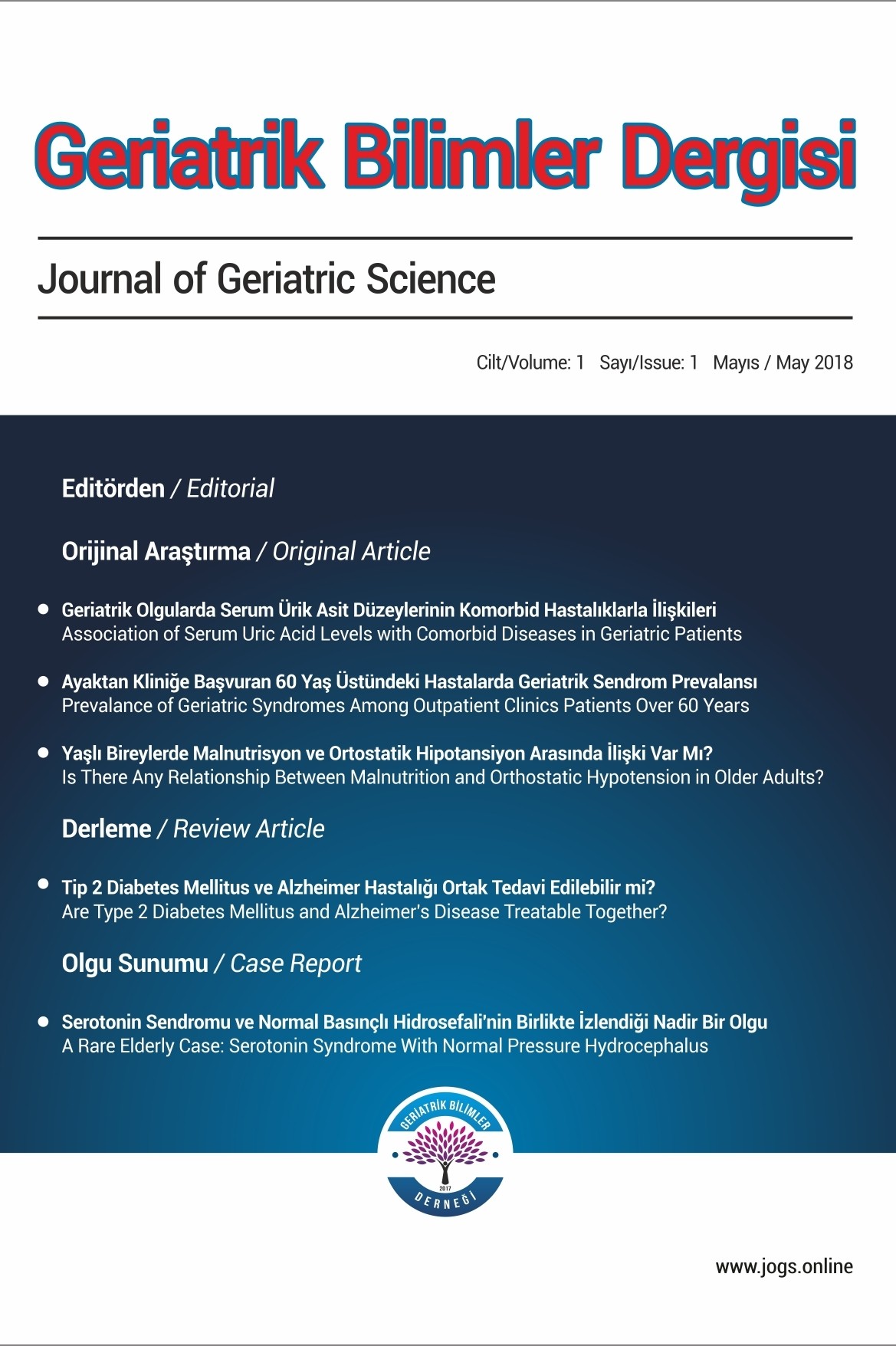
Geriatrik Bilimler Dergisi
Yazarlar: Suleyman Emre KOCYIGIT, Ali Ekrem AYDIN
Konular:Tıp
Anahtar Kelimeler:Hyponatremia,Old age,Diuretic,Comorbidity
Özet: Aim: Hyponatremia is the most common electrolyte disturbance in older adults and is associated with poor prognosis and increased mortality. The aim of this study was to investigate comorbid diseases and drugs associated with hyponatremia in older adults. Material and Methods: In this retrospective and cross-sectional study, 240 elderly patients (inpatients and outpatients) admitted to the geriatrics clinic were evaluated. Demographic characteristics, comorbidities, drugs and laboratory findings of all participants were evaluated. Hyponatremia was defined as sodium level <135 mmol / L. Results: The prevalence of hyponatremia was 22.1% and the mean age was 75.27 ± 7.28 years. The frequency of hypertension (HT), diabetes mellitus (DM), congestive heart failure (CHF), and atherosclerotic heart disease (ASHD) were higher in the hyponatremia group than normonatremia group (p <0.05). The incidence of diuretics, anridepressant and antipsychotic drugs usage was higher in hyponatremia group (p <0.05). Conclusions: Several comorbidities and frequently prescribed drug groups in older adults such as diuretics, antidepressants and antipsychotic medicines may be associated with hyponatremia. In this respect, it is necessary to evaluate patients in geriatric practice in terms of comorbidities and drugs.